The healthcare industry is evolving rapidly, driven by advancements in technology, changing patient demographics, and shifts in healthcare policy. For healthcare professionals, staying competitive means continuously developing a robust set of skills that are in high demand.Here, we outline the essential skills needed in today’s market and provide tips on how to cultivate them.
1. Clinical Expertise
Clinical expertise remains the cornerstone of healthcare. Mastery in specific medical fields, combined with practical experience, ensures that healthcare professionals can provide the highest standard of care.
How to Develop:
- Continued Education: Pursue advanced certifications and attend workshops.
- Hands-On Practice: Engage in internships, residencies, and volunteer opportunities.
- Stay Updated: Read medical journals and participate in professional associations.
2. Technological Proficiency
With the rise of telemedicine, electronic health records (EHRs), and advanced medical devices, proficiency in healthcare technology is crucial.
How to Develop:
- Training Programs: Enroll in courses focusing on EHRs, telehealth platforms, and other relevant technologies.
- Workshops and Seminars: Attend industry-specific tech seminars.
- On-the-Job Training: Take advantage of workplace training opportunities.
3. Communication Skills
Effective communication with patients, families, and colleagues is essential for ensuring clear understanding and collaboration.
How to Develop:
- Workshops: Participate in communication skills workshops.
- Practice: Engage in role-playing scenarios to enhance patient interaction techniques.
- Feedback: Seek feedback from peers and mentors to improve your communication style.
4. Critical Thinking and Problem-Solving
Healthcare professionals must make quick, informed decisions. Strong critical thinking and problem-solving skills are vital in high-pressure situations.
How to Develop:
- Simulations: Engage in clinical simulations and drills.
- Case Studies: Analyze real-world case studies and discuss them with peers.
- Courses: Take courses that focus on critical thinking and decision-making skills.
5. Empathy and Emotional Intelligence
Providing compassionate care is fundamental in healthcare. Emotional intelligence helps professionals understand and manage their own emotions and those of others.
How to Develop:
- Mindfulness Training: Practice mindfulness and stress-relief techniques.
- Patient Interaction: Spend extra time understanding patient needs and concerns.
- Feedback: Use patient feedback to improve your empathetic approach.
6. Adaptability
The healthcare environment is dynamic. Professionals must adapt to new policies, technologies, and patient needs swiftly.
How to Develop:
- Continuous Learning: Stay informed about industry changes.
- Flexibility Practice: Embrace new roles and responsibilities.
- Mentorship: Learn from mentors who exemplify adaptability.
7. Teamwork and Collaboration
Working effectively within a multidisciplinary team is essential for delivering comprehensive patient care.
How to Develop:
- Interdisciplinary Workshops: Participate in workshops that promote teamwork.
- Group Projects: Engage in projects that require collaboration.
- Feedback Sessions: Regularly hold team meetings to discuss and improve collaboration.
The healthcare industry demands a diverse skill set from its professionals. By focusing on developing clinical expertise, technological proficiency, communication, critical thinking, empathy, adaptability, and teamwork, healthcare professionals can ensure they remain competitive and provide exceptional care. Continuous education, practical experience, and a commitment to personal growth are key to mastering these essential skills.
Stay ahead in your healthcare career by embracing these skills and seeking out opportunities to refine and expand them. The future of healthcare depends on professionals who are not only knowledgeable but also adaptable and empathetic.







